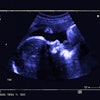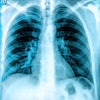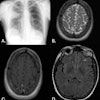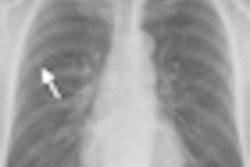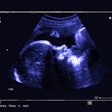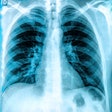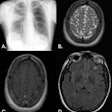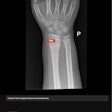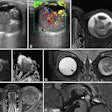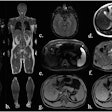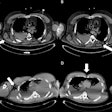Patients diagnosed with non-small cell or small cell lung cancer that has not metastasized have better overall survival outcomes when treated with hyperfractionated or accelerated radiation therapy (RT), according to a new meta-analysis.
The results of the analysis of 10 clinical trials involving 2,279 patients were presented at the European Lung Cancer Conference in Geneva by researchers from the Institut Gustave Roussy in Villejuif, France. Radiation oncologist Dr. Cecile Le Pechoux reported that in eight trials dealing with non-small cell lung cancer, modified fractionation of the radiotherapy treatments improved overall survival compared to conventional radiation therapy, resulting in an absolute benefit of 3% after five years.
Similar results were found with patients diagnosed with small cell lung cancer, but statistical differences with respect to survival could not be calculated due to the small sample size.
An estimated 1.1 million deaths per year worldwide are attributed to lung cancer, with non-small cell lung cancer representing more than 80% of all lung tumors.
The results could encourage further work to determine how best to deliver radiation therapy for lung cancer patients, Le Pechoux suggested, noting that interest in modified fractionation was uncertain before the meta-analysis was conducted.
Related Reading
Concomitant radiochemotherapy best for locally advanced non-small cell lung cancer, April 6, 2010
SBRT improves control in inoperable lung cancer patients, March 16, 2010
Surgery doesn't improve survival for stage III lung cancer patients, July 28, 2009
Concurrent/consolidated regime provides best survival for stage III lung cancer, October 5, 2005
Copyright © 2010 AuntMinnie.com
